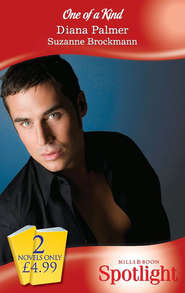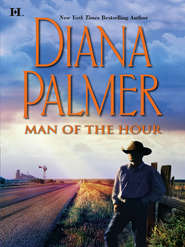По всем вопросам обращайтесь на: info@litportal.ru
(©) 2003-2024.
✖
Nora
Настройки чтения
Размер шрифта
Высота строк
Поля
“There is a Women’s Club social at the courthouse on Saturday evening,” he recalled. “I have been appropriated for it, by one of the organizers. Would you partner me?”
Her heart stopped and then ran away. Her mind whirled through her wardrobe and she looked up at him with barely subdued excitement. “Partner…you?”
“I dance rather well for a cowboy,” he told her amusedly. “And I promise to wear my best boots and plenty of cologne. You may trust me to be discreet.”
She colored, because her aunt Helen had repeatedly made her aware of the social distance between them. To be seen with a ranch foreman in public would embarrass not only her, but her family.
He saw her conflicting expressions and his face closed up. “Perhaps one of the town girls would be a better choice after all,” he said tautly. “One of them would not be so far above me on the social scale.”
Before Nora had time to react, he knocked curtly on the door and was admitted. When he left, he didn’t even look her way. He was fuming. Back in West Texas, women had vied for his attentions. The best families from back East had invited him to stay, in hopes of making a match between him and one of their daughters. He was as accustomed to wealth and position as Nora herself, but he was in the position of a man at a masquerade. He could not tell her the truth.
And the more he considered it, the angrier he became. It was a good thing that he saw her as she actually was, he told himself. Had she met him under normal circumstances, he might never have known what an appalling snob she really was.
THE SOCIAL EVENING was hosted by the local Women’s Club, of which Aunt Helen was secretary, and the club’s colors of green and white were used in the decorations. Nora wore a simple black silk gown trimmed in duchesse lace and diamonds. Melly wore white organdy, and Aunt Helen wore black taffeta, but their jewelry was made of rhinestones. They were elegant, in their way. But none of the women could hold a candle to Nora, who was so fashionable that she drew most of the attention.
Cal Barton escorted a pretty young girl who was a daughter of one of the organizers of the event. He was attentive to the girl, and once, while he danced with his partner, he gave Nora a look that made her feel two inches high. Her dignity and social position were not enough to compensate for the contempt she saw in his pale eyes. He wouldn’t know that Aunt Helen had been very firm about Nora’s conduct, and felt a working man would not be a suitable escort for such a lady of quality. Even if Nora had been willing to defy convention on her own, she couldn’t shame her aunt and uncle or spoil Melly’s chances of marrying well. She resigned herself to losing Cal Barton’s company, but very reluctantly.
A middle-aged visiting politician asked her for a dance, and she accepted with grace, smiling up at him with all her charm as they circled the floor. He seemed to be fascinated by her, because he monopolized her through three more dances until her befuddled aunt pleaded with her not to allow one man so much familiarity with her. Embarrassed, Nora retired to the party table. It seemed that she could do nothing to please her aunt.
“Is our Mr. Barton mad at you?” Melly asked when they were standing around the hors d’oeuvres table, where a huge candelabra lit the silver coffee service and savories on silver trays.
“It seems to be my lot in life to be the recipient of his ire, when I am not accidentally creating scandals,” Nora said resignedly.
“You mustn’t mind Mama,” Melly said gently, with understanding. “She means well, but it has been hard for her out here. Like your mother, she was a lady of quality, and now she feels her loss of status keenly. It is only that she wants a better life for me than she and Father have to endure. That’s why she’s so concerned about convention.” She touched Nora’s arm lightly. “She doesn’t know that you have a…a feeling for Mr. Barton. And I would not dare tell her. But I am sorry for you.”
“It is of no consequence,” Nora said stiffly. “I could hardly expect anything to come of it, considering the difference in our positions.” She tried not to feel the wounding of the quiet words. But how she wished stuffy social convention to damnation! If only she were an ordinary woman, or Cal Barton a gentleman of wealth. She sighed more wistfully than she knew, and Melly heard her. To divert her cousin, she glanced around and said quickly, “Isn’t that Mr. Langhorn?”
Melly’s hand shook, almost upsetting her cup of coffee. Nora quickly steadied it. “Careful,” she cautioned under her breath, “lest Aunt Helen suspect and say something to you as well.”
“Thank you,” Melly said sincerely. She laughed unsteadily. “I daresay, we are both in danger from Mama this evening. And from the look of things, you seem to be on Mr. Barton’s list of preoccupations.”
“That is unlikely now, since I have been forced to snub him,” Nora said carelessly, refusing to look as she saw Cal making his way steadily toward them. “I fear that he finds me totally forgettable.”
“Really? Would you look at that scowl!” she mused as he came closer.
Nora’s own hands were none too steady, but she had poise and composure that young Melly lacked. She looked up at Cal indifferently, feeling the distance in their social stations keenly as she took in his slightly out-of-fashion suit and the scuffs on his black dress boots. She couldn’t know that he’d dug them out of the bottom of his trunk deliberately for the occasion, to reinforce his status as a lowly ranch hand.
“You look very nice, Mr. Barton,” Melly said with a grin.
“Thank you, Miss Tremayne,” he replied politely. “So do you.”
Nora tried not to look at him. She sipped her coffee. “Are you having a good time, Mr. Barton?” she asked. “I take it that social functions aren’t your usual sort of entertainment.”
Вы ознакомились с фрагментом книги.
Приобретайте полный текст книги у нашего партнера:
Приобретайте полный текст книги у нашего партнера:











